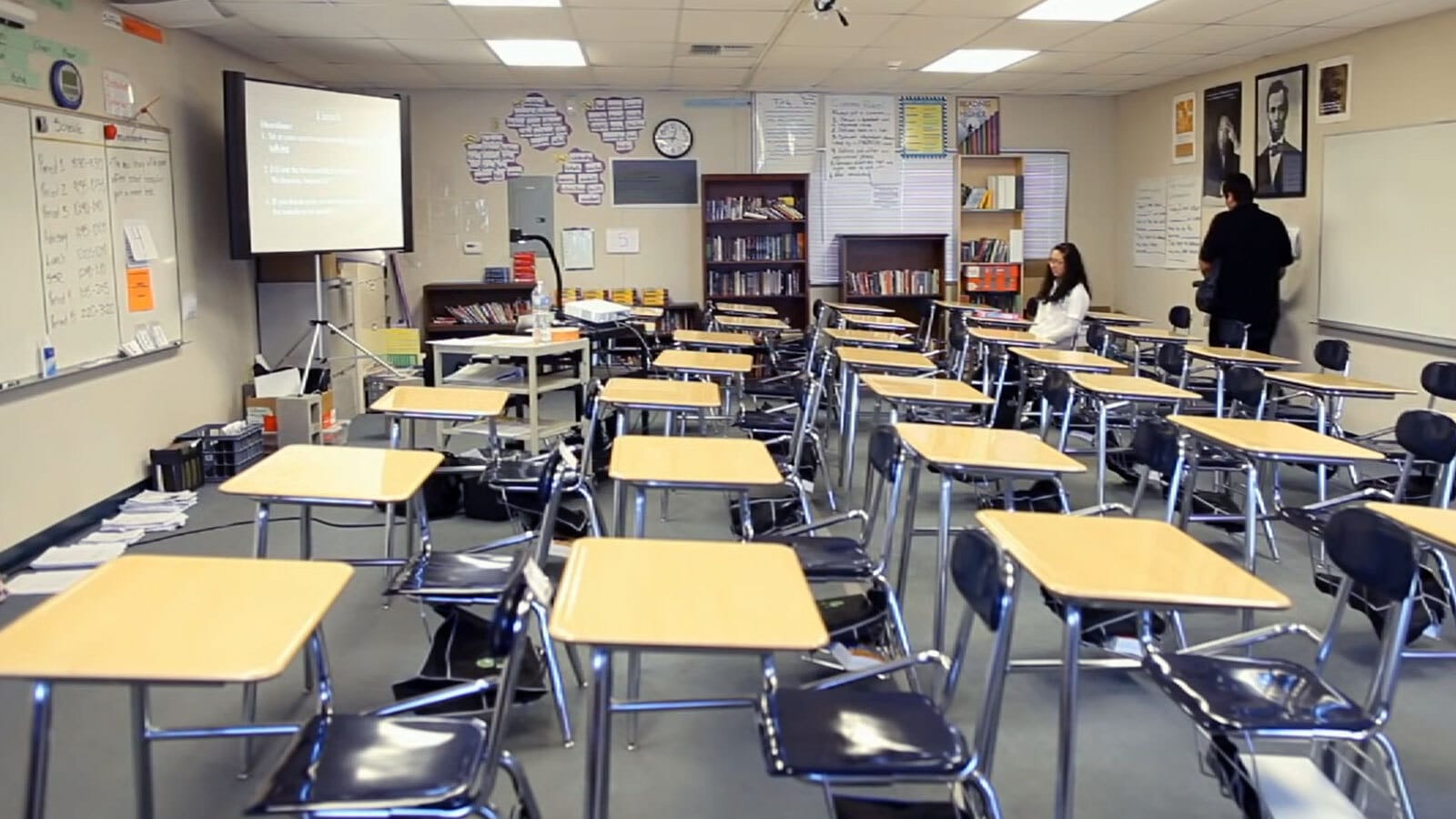One of The Good Ones
by Myriam Gurba

To be an effective high school teacher, one must develop patience. Vexatious students can be powerful mentors in this regard. They’ll remind you that kids are kids, and that a surefire way for a teacher to lose authority is for her to wage war against the class clown.
Loud, smart, and desperate for attention, Sof was a junior who taught me patience and restraint. In my U.S. history class, they sometimes interrupted instruction by blurting out witticisms and jokes. While their commentary was entertaining, it was often inappropriate. I regularly struggled not to laugh. Sof has since apologized for being disruptive, and they were especially embarrassed about the time they derailed a historical reenactment. Sof had been assigned the part of Neville Chamberlain, but much to everyone’s surprise, they went off-script, yelling, “I’m Rick James, bitch!” It was the aughts, we were studying isolationism, and the class erupted in laughter. Kids recognized the dialogue from a popular Chappelle’s Show skit, one that my little brother is also a fan of. Perhaps having Sof as my student was a karmic comeuppance. When I was a teen, I, too, lived to torture my US history teacher.
Sorry, Father Ed.
I shouldn’t have tossed that rubber cockroach at you.
Sof sometimes visited me at lunch time. We would chat, and they would tell me that compared to Israel, the United States seemed laughably young. Born on a kibbutz in the city of Afula, they were now living on the other side of the world, in Long Beach, California. Still, Sof made sure people knew where they were from. On their arm was a tattoo of a Star of David which a guitar-string needle had etched into their skin. After graduating, Sof returned to Israel. We lost touch for a while. When they returned to the U.S., they re-connected with me.
Since October 7, Sof has wanted to discuss current events, politics, and history, just like we used to at school. Because I believe that teaching is a lifelong obligation, I continue to hold intellectual space for my former students. I continue to nurture their curiosity. It would be wrong of me not to.
I’m grateful to Sof. Our conversations make me hopeful.
Sof is now a thirty-four-year-old with a master’s degree in sociology, and they acknowledge that Israel is perpetrating a genocide. In my history class, Sof learned that the concept was developed by Polish Jewish lawyer Rafael Lemkin. In 1948, the United Nations adopted the Genocide Convention, enshrining many of Lemkin’s ideas. The Convention states that genocide is an “intent to destroy, in whole or in part, a national, ethnical, racial or religious group.” To date, the Palestinian genocide has claimed 35,000 lives, most of them women and children. Many scholars have also emphasized that while intent is often obscured by genocidaires, that is not the case in Israel. Law for Palestine maintains a database with over 500 instances of Israeli incitements to genocide, including this televised statement made by Minister of Education Yoav Kisch on September 10, “Those are animals; they have no right to exist. I am not debating the way it will happen but they need to be exterminated.”
While Sof now finds the student movement to end the Palestinian genocide inspiring, they once celebrated the killing machine responsible for it: the Israeli Defense Forces.
Like many eighteen-year-olds, Sof was looking for somewhere to belong when they moved back to Israel, a country they had left at age six. To fit in, they adopted the mentality of those around them. That way of thinking amounted to, “Arabs bad. Jews good.” 9/11 also helped lay the groundwork for their xenophobia. They were eleven years old and living in New York when the attack happened. Sof says, “I tried really hard to distance myself from Arabs. I was like, ‘No, I’m Israeli. I’m one of the good ones!” Nonetheless, bigots back then still called Sof a terrorist.
As a returning Israeli citizen in 2008, Sof went to basic training. They also worked in a burger shop where they learned that Israelis love hamburgers with hummus on falafel. (Sof says that this concoction isn’t bad. But it is weird.) Because of their knees, Sof wasn’t assigned to combat training. Instead, they were a jobnik, a “noncombatant” who, nevertheless, carried a rifle. Before they could complete their three years of training, Sof attempted suicide. Military officials issued a psychiatric release. Within days, Sof was on a plane bound for the U.S. They stopped glorifying military service and were now free to contemplate what Israel was doing to Palestinians.
At 24, they returned to college. There, they made a friend, a Palestinian from Gaza. The two talked and talked and talked and eventually, Sof acknowledged their ignorance and began learning the history of Palestine. They studied settler colonialism and realized that like the United States of America, Australia, Canada, and Mexico, Israel is a settler colonial state. After reading Edward Saïd, Sof embraced the concept of a one-state solution. Chandra Talpade Mohanty’s work also enlightened them.
Sof’s journey proves that ideological transformation is possible. In Sof’s case, much of that change seems to be the result of active curiosity, a willingness to expand their zone of proximal development. A concept developed by psychologist Lev Vygotsky, the ZPD refers to “the difference between a student’s level of ability versus the level of ability that they can achieve when assisted by… older or more experienced partners.” By enrolling in college, studying sociology, reading widely, and befriending people who were once their sworn enemy, Sof relied on others who were willing to teach them. That indicates trust and a certain level of confidence in oneself to apprehend the truth.
When a teacher witnesses her student exercising intellectual growth and bravery, it makes enduring a year’s worth of Dave Chappelle impersonations worthwhile.

